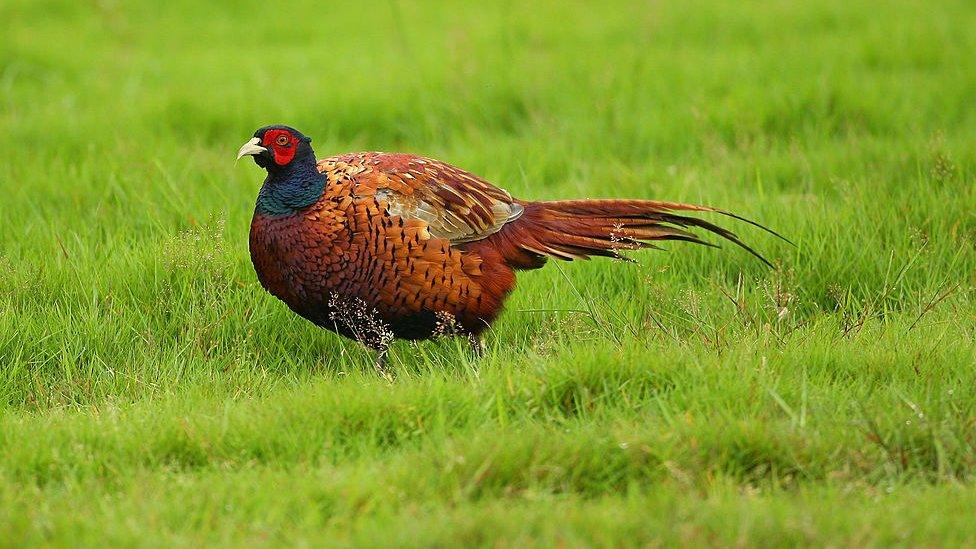Anglesey: Bird flu confirmed in ducks and chickens in backyard
- Published
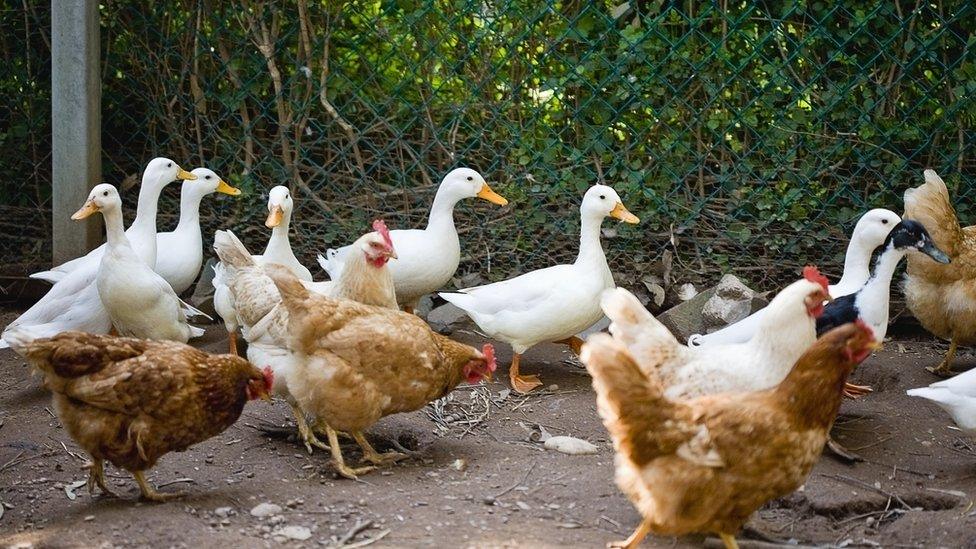
A Temporary Control Zone Area has been imposed around the small infected premises, to limit risk of the disease spreading
Bird flu has been confirmed in a small backyard flock of chickens and ducks, the Chief Veterinary Officer for Wales has said.
Christianne Glossop confirmed the presence of the H5N1 strain at a premises on Anglesey.
She said a 3km and 10km Temporary Control Zone Area had been imposed around the site.
A case of bird flu was confirmed in poultry and wild birds in Wrexham county last month.
On Wednesday, the Chief Veterinary Officers for England, Scotland, Wales and Northern Ireland agreed to bring in new housing measures to protect poultry and captive birds from bird flu.
These measures come into force on 29 November.
All keepers are strongly advised to be vigilant for signs of the disease, such as increased mortality or respiratory distress, and if keepers have any concerns about the health of their birds they are encouraged to seek prompt advice from their vet.
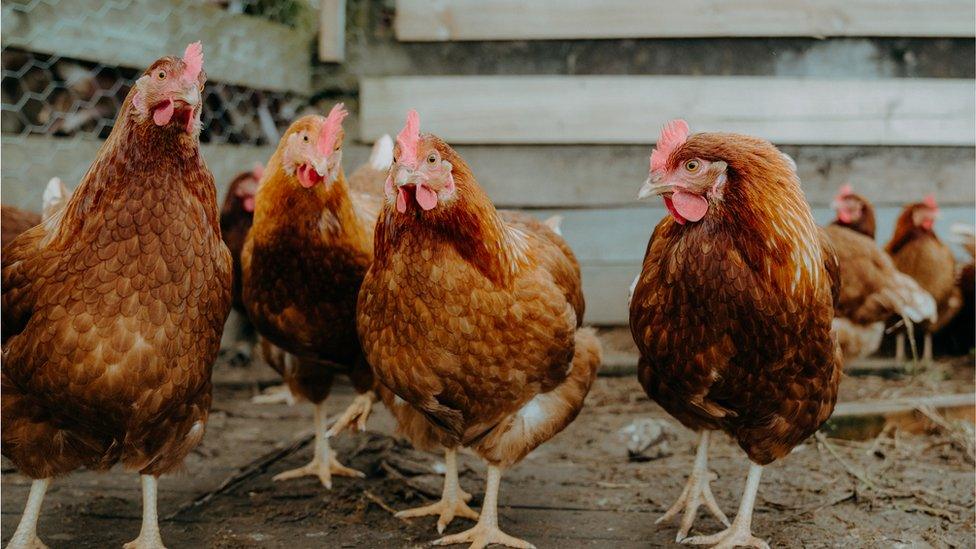
Bird flu is spread by close contact with an infected bird, whether it is dead or alive
Ms Glossop said: "This confirmation of a case of avian influenza in poultry on the Isle of Anglesey is further evidence of the need for all keepers of birds to ensure they have the very highest levels of biosecurity in place.
"We have announced new housing measures will come into force from next Monday to protect poultry and kept birds, but I must stress that this is at its most effective when combined with implementation of the most stringent biosecurity measures.
"Public Health Wales has said the risk to the health of the public from avian influenza is very low and the Food Standards Agency has made clear it does not pose a food safety risk for UK consumers.
"Temporary control zones have been imposed to help prevent further spread of the disease.
"Suspicion of avian influenza or any other notifiable disease must be reported to the Animal and Plant Health Agency immediately."
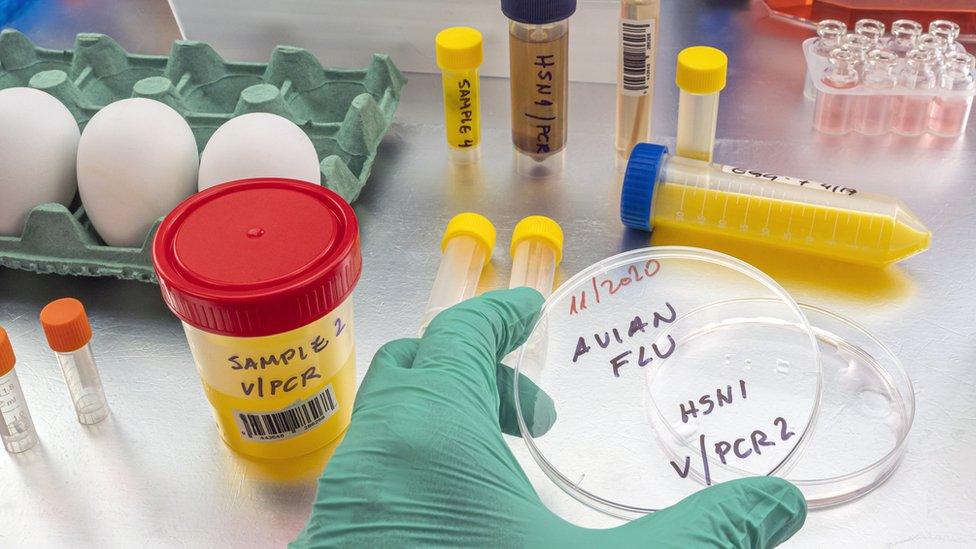
H5N1 avian influenza was also confirmed at a chicken farm in Leicestershire earlier this week
What is bird flu?
Bird flu, or avian flu, is an infectious type of influenza that spreads among birds.
The NHS says it can affect humans, external - but only in very rare cases.
To date there have been no cases of humans being infected with avian influenza in the UK, the Royal Society for the Protection of Birds (RSPB) said.
Bird flu is spread by close contact with an infected bird, whether it is dead or alive.
There are two forms of the virus - high pathogenicity (HPAI) and low pathogenicity (LPAI), the Health and Safety Executive (HSE) says.
Pathogenicity indicates the severity of the disease if the bird contracts the virus.

IF YOU GO DOWN TO THE WOODS TODAY: Five friends bound together by a brutally fragile pact of silence...
FIERCE AND FABULOUS: Hayley Goes... exploring the issues of her generation in a brand new series

- Published25 November 2021
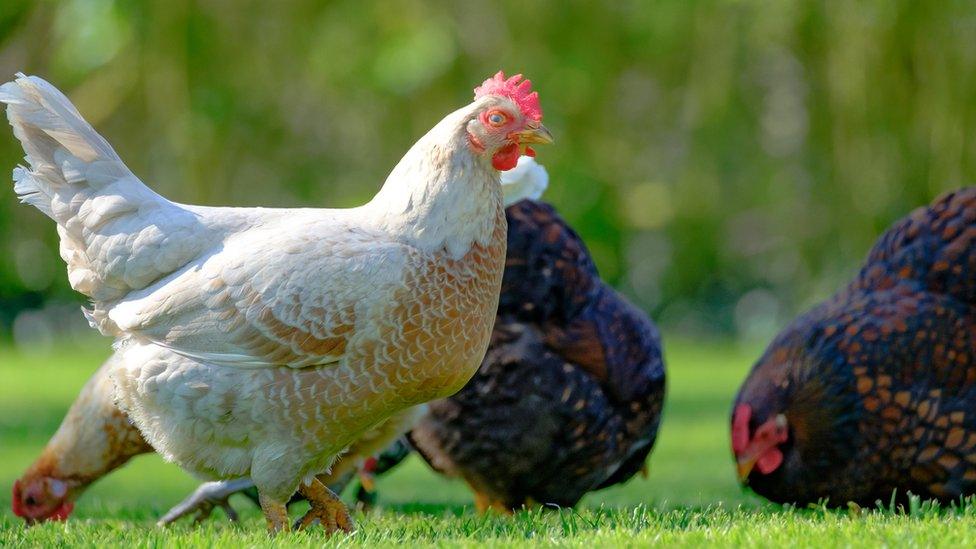
- Published2 November 2021
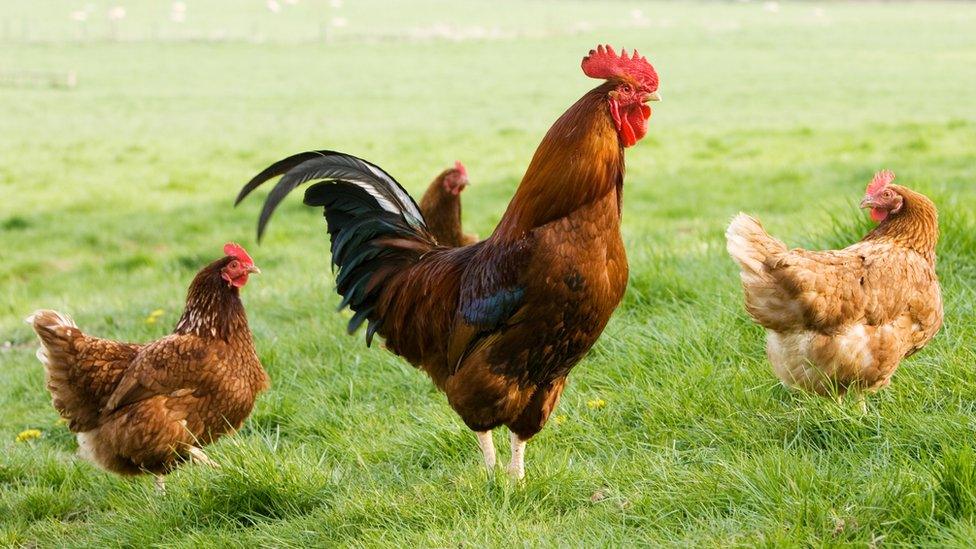
- Published24 November 2021
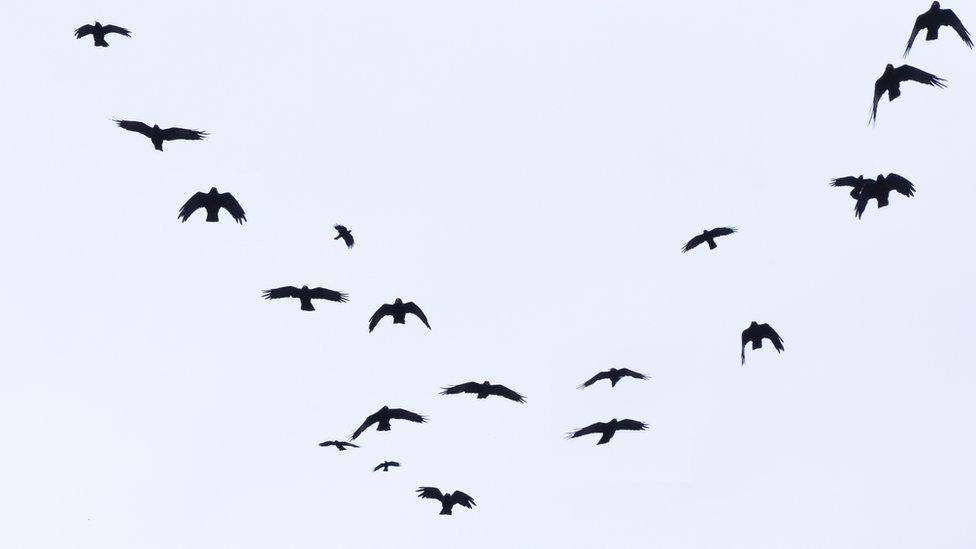
- Published21 November 2021

- Published28 January 2021
